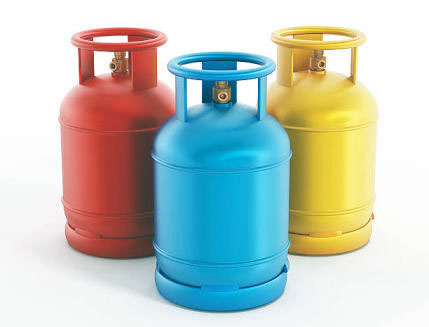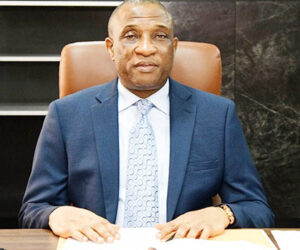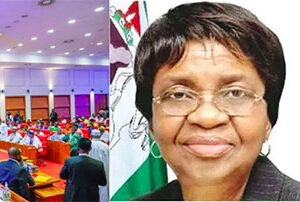3
When the average cost of refilling a 12.5kg cylinder of Liquefied Petroleum Gas (LPG), popularly called cooking gas, was N9,247.40 in September 2023, many Nigerians complained.
By December 2023, when it surged to N11,510, they groaned. Fast forward to October 2025, despite brief fluctuations and a mild decline from a July high, the price now hovers above N16,850. Yet somehow, there is no real relief.
The market is behaving as if the laws of equilibrium have been suspended.
Economically speaking, price equilibrium occurs when supply meets demand, but in Nigeria’s cooking gas market, the graph has been consistently skewed by structural problems, foreign exchange chaos, and a reckless dependence on imported products, even though the country sits on massive natural gas reserves.
The trend, illustrated clearly in pricing data from May 2023 to October 2025, paints a worrying picture: the price of cooking gas in Nigeria has refused to find balance, only rising with every policy misstep, currency slump, and supply chain breakdown.
For millions of households, LPG is not a luxury, it is a basic necessity. But over the past two years, it has become increasingly out of reach. Households are now rationing cooking gas or even ditching it entirely.
“I don’t cook beans or soups more than once a week now,” said Madam Tinuke Ajidagba, a Lagos-based mother of four.
“I alternate with charcoal to make ends meet.”
A tailor in Mowe confessed that he has gone back to cooking with firewood: “Gas is beyond reach. There’s no point pretending.”
These are not fringe cases; they represent a national retreat from modern cooking energy. What Nigerians are experiencing is a market in disequilibrium, where affordability and access have collapsed under the weight of structural dysfunction.
Official data from the National Bureau of Statistics reveals that between May 2023 and May 2024, the price of cooking gas jumped by over 63%. That is not just inflation; it is economic fracture, further squeezing household budgets already battered by rising food, transport, and utility costs.
So, what exactly is causing this stubborn imbalance?
According to economist and consumer policy analyst, Mr. Edmund Uweru, the answer lies in a tragic paradox: “Nigeria is one of the world’s top crude oil producers, with some of the largest gas reserves. Yet it imports 40% to 60% of its LPG because we lack the capacity to process and distribute our own gas. It is like having a full tank of petrol in your car but needing someone else’s car to drive.”
The implications are dire. As long as Nigeria relies on imports priced in U.S. dollars, every shift in the exchange rate becomes a direct hit on household gas prices.
A cylinder that cost N9,000 in 2023 can now cost nearly double, not because demand increased or supply tightened domestically, but because the naira crashed. And this is where policy meets practical reality.
When the government unified exchange rates in mid-2023, it accidentally yanked away one of the market’s key stabilizers. Overnight, the cost of imported LPG reflected the full brutal weight of the naira’s slide against the dollar. There was no more buffer, no more preferential pricing.
Industry data shows that as the naira weakened from ₦565/$ in 2021 to over ₦1,000/$ on the parallel market in 2023, cooking gas prices climbed over 200%. This trend continued into 2024 and 2025 without real respite. Instead of correcting, the market has become more volatile, with supply and demand constantly chasing each other without ever settling.
Economists point to policy inertia as a key villain. Yes, the government removed VAT and customs duty on LPG imports. But those measures barely scratched the surface of the real crisis: inadequate domestic gas processing and infrastructure.
Despite its reserves, Nigeria flares more gas than it captures. The few operational gas processing plants can’t meet national demand. Energy logistics are inefficient. Pipelines are limited. And domestic production is too low to stabilize prices.
Meanwhile, global benchmarks affect import prices, and marketers pass every extra cost to consumers. The result? A chronically unstable market driven by exchange rate swings, foreign dependence, and institutional neglect.
Yet, there is a glimmer of hope. Recent data shows that slight gains in the value of the naira have helped ease gas prices in some urban centers.
Households are feeling some relief, but no one is fooled. Until Nigeria invests heavily in domestic gas processing and distribution, the market will continue to defy equilibrium.
Against the backdrop of the foregoing, not a few experts agree that the only path to sustained price stability lies in ending the madness of importing what we produce Mr. Callistus Eze, a banker, in his take said, “Nigeria must become a producer and exporter of refined LPG and cut out the middlemen. Until that happens, ordinary Nigerians will remain at the mercy of volatile markets and a broken energy policy framework”.
Mr. Eze, in his parley with DAILY INDEPENDENT asked, “For now, the question remains glaring: how long can a nation of over 200 million people keep cooking with a product priced like a luxury? The answer is brutal but clear, until the government prioritises infrastructure and stops pretending that a shattered market will magically fix itself ”.




